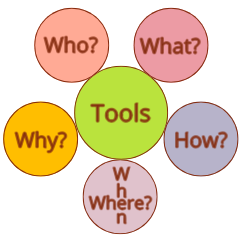What/Predicaments
Predicaments
Persons feel a concern as a doubt directed inward as they contemplate acting in a multifaceted world. In contrast, persons face their outer world when they find themselves in a predicament. These life situations — ominous, troublesome, perplexing, perhaps even fortuitous ones — clamor for attention, a Rubik's cube of problems in which solving one aggravates another.Everyone faces passing predicaments when we must do too many distinctly different things more or less at once. Ducking and weaving, juggling them, we manage to muddle through. But we also face more serious predicaments, life situations with many interwoven problems that interact, preventing our systematically solving the problems, one by one. These can seriously frustrate the pursuit of self-formation and liberal learning.
Usually, we think of big predicaments as something portentous, threatening — climate change, a global epidemic, poverty, war, racism. But they can be propitious, hopeful, as well. A predicament, positive or negative, involves a complex set of interlocking problems that require near simultaneous solution. The pragmatic paradigm for solving problems — problem, program, implementation — does not work well for persons facing predicaments, for the simultaneity of multiple problems put them outside the realm of practical if-then solutions.[1] Predicaments deserve study aimed at developing an alternative to the pragmatic paradigm, perhaps one we might call the principled paradigm — predicament, principle, commitment — that will help a person be mindful of the inter-relationships at work in the predicament while coping with the complex flow of their life choices. Some predicaments frustrating self-formation and liberal learning:—
- Countering the intellectual incoherence of culture.
- Becoming inclusive in judgments and actions.
- Freeing learning from social, professional, and academic biases.
- Bridling opportunism by fostering integrity.
- Learning to act globally by thinking locally.
- ↑ The method of elimination used in mathematics — simplifying the problem systematically by removing variables one by one — leads to atrocity and genocide, and all sorts of extreme injustice when the predicament involves diverse human problems.




